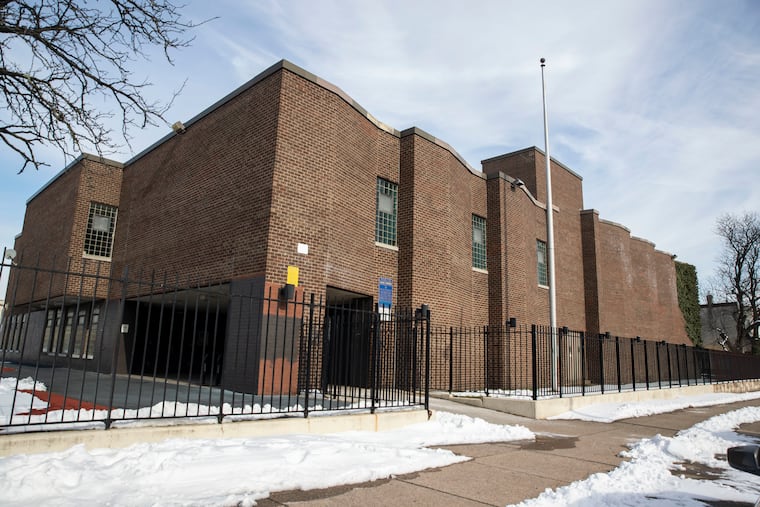West Philly pool closure is a disservice to a community in need | Opinion
The Philadelphia Board of Education should reverse their decision and reopen Sayre-Morris Pool as soon as possible.

Access to public pools may seem as if it has little to do with gun violence and community safety, but public pools are not just a nice thing or a perk. They provide a safe place for recreation.
In a city where hundreds of people are killed each year, keeping an indoor public pool open could make a lifesaving difference. That’s why the Philadelphia Board of Education should reverse its decision and reopen Sayre-Morris Pool as soon as possible.
Last week the board rejected a proposal to spend $10 million on a project to restore and reopen the pool, at 59th and Spruce Streets. The pool, which is adjacent to Sayre High School, is part of a city recreation center owned by the Philadelphia School District and was the only indoor Olympic-size public pool that served both district students and community members.
At the heart of Philly’s gun violence epidemic are social and economic inequalities, often caused by policies like redlining and exclusionary zoning. This has resulted in highly segregated communities that have seen years of disinvestment in neighborhood community spaces and schools. Communities with fewer resources — including outdoor spaces, pools, and libraries — are often the communities where gun violence is most prevalent. And yet, Philadelphia’s outdoor pools have a history of being drained and closed when gun violence spikes in their surrounding communities, as we saw when Belfield Pool was shut down in the summer of 2019. Sayre-Morris’ deferred pool maintenance, and the board’s decision not to restore it, is just the latest example of the city’s continued disinvestment in our most underserved neighborhoods.
Since the pool’s 2017 closure, Cobbs Creek neighbors, including 3rd District Councilmember Jamie Gauthier, have been advocating for its reopening — especially as the number of shootings in the neighborhood continued to climb.
As Gauthier said in a statement following the Board of Education’s announcement: “The decision is not only an abdication of the district’s responsibility to a community it serves and an insult to five years of activism by devout members of the Cobbs Creek community, it also suggests that the Board does not have a complete understanding of the critical nature of an asset like this in a Black neighborhood both besieged by gun violence and lacking in safe recreational spaces.”
Pools and other recreation centers are vital, safe spaces in neighborhoods. One study found that under-resourced neighborhoods that had access to a recreation center had lower violent crime rates. While no studies have been conducted specifically on pools and reduction in gun violence, in the late 1960s, Chicago and New York City installed swimming pools to help reduce community violence.
Beyond potentially stemming violence, pools also create spaces for exercise for people of all ages and are a vital public space that can facilitate learning a lifesaving skill. A study by Diversity in Aquatics found that 79% of kids from low-income families (those earning $50,000 or below) have little to no ability to swim. The study also showed that nearly 64% of Black children were at higher risk of drowning, due partially to an overall lack of pool access. (The Cobbs Creek neighborhood in West Philadelphia is 55.4% Black.) In 2020, when the city shuttered public pools, two teens in West Philly drowned attempting to swim in the Schuylkill.
The City of Philadelphia, home to the nation’s largest network of outdoor public pools, provides residents with free swim lessons. This is a laudable step toward upending national swim trends and preventing unnecessary drownings, but the lessons can only occur in the summer season due to weather, since the majority of city-owned pools are outdoors. What’s more, as budget cuts have deepened, the pool season has been decreased to only a few short weeks. There is no such program in district schools, but if reopened, Sayre-Morris could offer vital swim lessons and opportunities year-round, both in school or afterschool.
All too often, the Board of Education and the district’s administrative leaders are faced with difficult trade-offs because of the chronic underfunding of Pennsylvania schools by the state legislature.
In discussing the issue at last week’s school board meeting, board president Joyce Wilkerson argued that reopening the pool could be a mistake within the context of broader funding issues. Board member Maria McColgan added: “Should pools be our priority? How many playgrounds could we build with this money?”
Yes, pools should be a priority.
The Board of Education and the City of Philadelphia should reconsider the decision to close the Sayre-Morris Pool so it can be an example of a welcoming public space that serves to teach district students a lifesaving skill, provides a bit of respite to the Cobbs Creek community, and contributes to Philadelphia’s efforts to curb violence.
Dena Ferrara Driscoll is a development and communications professional as well as the mother of two Philadelphia public school students, and an advocate for public space issues, including pools. She learned to swim as an adult. @bikemamadelphia